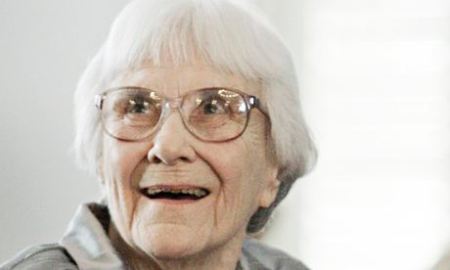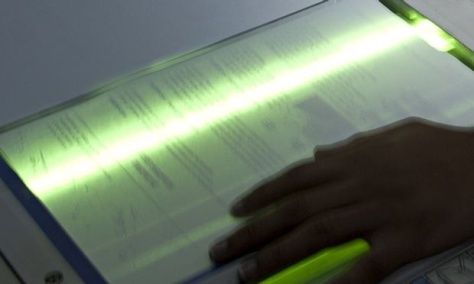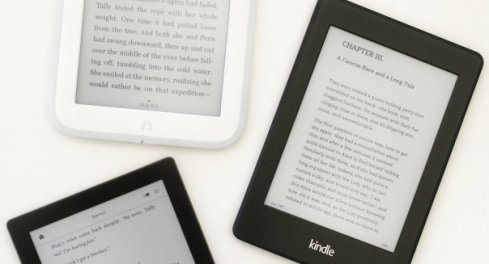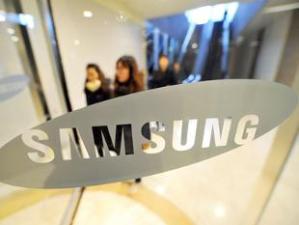Each Wednesday, Talking New Media invites industry leaders to discuss industry topics involving digital publishing. This week’s column is authored by Mark Gross, President and CEO of Data Conversion Laboratory.
Traditionally, a publisher accepts a manuscript in the hopes that it will do well. The publisher invests in each workflow step and in marketing and other areas, hoping to eventually recoup costs –and to profit – through sales. These are investments that a self-publishing author needs to deal with on his own, and are what we mean by assuming the risk for your own book.
This article is a repost from talkingnewmedia.com
With the emergence of eBooks, self-publishing has become easier and more attractive to many authors. However, while striking out on your own has benefits, it also requires you to assume responsibilities and risks otherwise taken by the publisher. One benefit is that you don’t need to wait for a publisher willing to take on your work; you can do it on your own. You also can tailor your own path according to your strengths; if you’re a great designer but a poor marketer, you could craft your own materials while hiring – or consulting – a marketing expert. You could learn from every step of the process and plan the next step. However, each step in the workflow costs time, money or both.
This article outlines risks involved in each of the key steps of the publishing workflow: editorial, design, production, promotion and distribution. While the more you do yourself, the less your cash layout will be, depending on your abilities, skills and time availability, you may not wish to execute every step yourself – especially when you consider the cost of a poor-quality output delivering a poor user experience.
Editorial
The editorial process takes several forms, such as developmental editing, copy editing, fact checking and legal vetting. All play a part in making your book the best it can be. Multiple quality control checkpoints throughout the process let you avoid costly errors and heavy clean-up at the end.
- Developmental Editing – Developmental editing helps you shape your book. Rather than focusing on a line-by-line edit, the goal is to concentrate on the structural organization of the book: coherent flow of the narrative, plot holes, and appropriate explanation of terms for the audience. Developmental editors – sometimes called “book doctors” – help you trim areas of your book that are too long and punch up details that need highlighting.
But do you really need a developmental editor? It’s a rare author who can write a perfect book without feedback. A developmental editor doesn’t rewrite the book, but he helps it along on the path to completion while maintaining the author’s voice.
- Copy Editing – Most people, even master writers, make grammatical mistakes. The job of a copy editor is to adjust punctuation and spelling, assess the use of jargon, verify terminology, ensure proper capitalization, edit out embarrassing usage errors, and keep language consistent throughout the work. Copy editing is different from proofreading – while copy editing focuses on errors of meaning, proofreading concentrates on errors of typography. Self-published books frequently suffer from a want of copyediting, and this is one of the differentiating factors that can make a self-published book appear less professional than a traditionally published one.
Traditional publishing houses employ in-house or outsourced copy editors. Either way, every book that passes through a publishing house should get a thorough going-over to ensure that the manuscript is free of mistakes and conveys the author’s message concisely.
• Fact Checking and Legal Review – For nonfiction writers, a fact checker is essential. Fact checkers adhere to a rigorous standard, questioning assertions and asking for documentation and citations to support those assertions. Ultimately, the author is responsible for the facts in the book, and must check the facts himself or hire outside help.
If your book discusses the lives or actions of identifiable people, you may want to have it reviewed by a lawyer. This will help avoid lawsuits, alleging defamation, libel or other charges.
Design
Both print books and eBooks need to be designed in order to present a professional appearance. Good design also levels the playing field and makes a book more marketable. But print books and eBooks each have their own design issues; solving them thoughtfully with insight to the particular product is critical to providing a good experience for the reader.
One great advantage of eBooks for the reader causes problems for the publisher. Unlike with print, for which the author and publisher controls exactly what the reader sees, the reader of an eBook controls many of the display elements, such as:
Text size
Font, color and background
Orientation (landscape versus portrait)
Other factors the reader may control include:
Color versus black-and-white
Screen size
Memory
Processing speed
Common design issues for eBooks involve many factors, including line breaks, fixed versus reflowable text, design traits such as text on top of images or layered elements, tables with many columns and data, and image captions not always being on the same page. Generally, layouts for eBooks won’t exactly match the elements of the print book, and you need to take that all into consideration or team up with someone who can lend the right expertise.
Production
Much of the production process with eBook development has to do with conversion from whatever the original source is. A print design won’t simply convert to digital without work on analyzing the input. “Good” design output means a lack of typos, special characters captured correctly in Unicode, working links, clear images, and consistent formatting throughout the book.
Automated conversion software by itself may be too limiting because it can’t always accurately interpret elements on a page. This is especially true when the content has any level of complexity, such as multi-column layouts or tables.
Using a conversion process that includes a combination of automation and human intervention, as well as multiple quality checkpoints throughout, will ensure the quality of an eBook.
Promotion
Important, but inexpensive, approaches to marketing eBooks are making sure they are findable on the Internet, getting local media and bloggers to pay attention, and using various forms of social media. It’s difficult to identify overspending or underspending on promoting and marketing your eBook, so proceed cautiously, spend incrementally and try to benchmark any possible results. While doing it yourself saves money, it is a learning experience, requiring a big investment of time and money, so take small steps.
• Metadata – The search engine is now the primary intermediary between your book and its reader and is highly dependent on metadata – the data about the book. If your metadata properly reflects keywords that are being searched, your book has a better chance of being found on the search engines (which link to your bookstore listing). If your book is not sufficiently optimized for search engines, you run the risk of the book not coming up as readers search on the topics on which you’re an expert.
It’s also important to remember that there are many sources of book metadata. Book distributors’ and online bookstores’ staffs manually change the data. Any of these sources could be making changes to your book listing, so tracking down the source of incorrect or incomplete data can sometimes be difficult. Your best approach is to make sure your data is correct at Books in Print, and track the different places where your book is listed and correct data there as well
- Local Media – Don’t underestimate the power of your local media market. Starting with your hometown and expanding to surrounding regional outlets will help you start building your media visibility. Call your local library for placement ideas, and reach out to the local newspapers to build interest. Also pitch to local television and radio programs.
- Social Media – Do not forget social media! Facebook and Twitter are essential in getting the word out about crucial events like book signings. Additionally, such sites as Tumblr and Pinterest provide unprecedented access to the types of audiences you want to reach with your material, but require a fair amount of outreach on your part. Think of media placements as resume builders for your book and message. By noting your achievements, you’ll have more appeal and credibility when pitching to national outlets.
Distribution
Writing and creating a book is half the battle. The rest is distribution. Unless you have thousands of people beating a path to your door, you’ll need to get your book placed in bookstores so customers can buy it. Your publishing platform may handle distribution for you.
- Online bookstores – Digital shops offer a lower barrier to entry than physical bookstores because they don’t have the same space concerns. Online bookstores like to offer as wide an inventory as possible, but each vendor has different requirements for book listings.Amazon provides several options, depending on your circumstances. Amazon is probably the easiest online retailer to get a listing on, and, along with iTunes, allows your book to be downloaded to Apple devices.
Barnes & Noble requires you to become a Vendor of Record with its warehouse. If you are interested in selling print titles for eBooks only, you can go to the Nook Press site and upload your eBook files.
The American Booksellers Association (ABA) has a publisher partner program for those publishing five or more titles per year. This partnership gives you exposure to independent booksellers who are ABA members. Keep your vendors happy by reading their requirements carefully and follow their procedures. They have a lot of suppliers. For you as a publisher, the bookstore – the main portal to your reader – is actually your customer. And, of course, you want to give your customer good service.
- Physical bookstores – Getting into physical bookstores is probably the biggest challenge for any small publisher. With retail options, including shelf space in existing bookstores closing rapidly, it helps to have a distributor. The two largest distributors in the U.S. are Ingram and Baker & Taylor. But even getting in the door of a distributor is difficult because your book is competing with millions of others and bookstores may not select it for in-store sale.
One useful approach is to go personal. Most bookstore chains have a community events coordinator; otherwise, the bookstore manager is the person with whom to cultivate a relationship. And even within a chain of bookstores, individual shops are given some encouragement to stock the books of local authors. Introduce yourself and present your book to the coordinator or manager. You can offer to provide a reading or another event. The important thing to focus on is what your book can do for the store. Will a reading help attract customers? Does your book relate in any way to other books that people might purchase when they come in? What value are you bringing the store?
Mark Gross, founder, president and CEO of Data Conversion Laboratory, is a recognized authority on XML implementation and document conversion. Mark also serves as Project Executive at DCL, with overall responsibility for resource management and planning.
Feel free to visit Dyman Associates Publishing Book Review Corner where you can do your tasting (and even do your shopping) of books.







